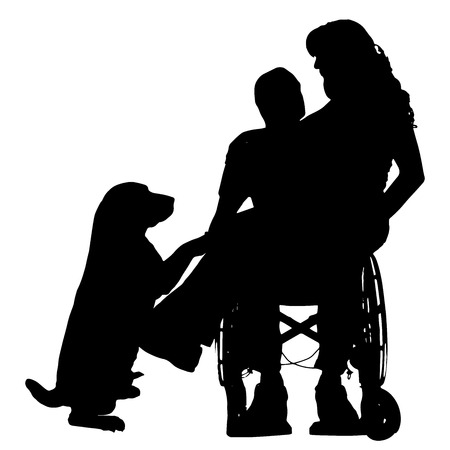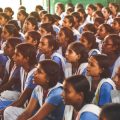Introduction: Community-Based Rehabilitation in the Indian Context
Community-based rehabilitation (CBR) has become a cornerstone of mental health and disability care across India, reflecting the countrys rich diversity in culture, language, and socioeconomic backgrounds. In India, the approach to rehabilitation is uniquely shaped by the integral roles that family members and local communities play in supporting individuals facing physical or mental health challenges. CBR programs are designed not just as clinical interventions but as holistic support systems that harness community resources and traditional values to foster recovery and inclusion. This model is particularly relevant in the Indian context, where disparities in access to healthcare and limited infrastructure often pose significant barriers for those living with disabilities or chronic mental health conditions. By leveraging the strength of joint family systems, social networks, and locally tailored solutions, community rehabilitation initiatives address not only medical needs but also empower individuals through vocational training, self-help groups, and inclusive education. The success of these programs depends on culturally sensitive strategies that honor local customs while promoting evidence-based practices—ensuring that rehabilitation is accessible, acceptable, and sustainable within the diverse fabric of Indian society.
2. Case Studies: Stories of Success Across India
India’s diverse cultural landscape has paved the way for innovative and community-specific rehabilitation initiatives. Each region brings its unique strengths, challenges, and solutions to the field of community-based mental health rehabilitation and relapse prevention. The following case studies highlight transformative journeys from different parts of India, demonstrating the power of local approaches and the dedication of key contributors.
Andhra Pradesh: Community-Led Recovery in Rural Villages
In Krishna district, a partnership between local self-help groups and primary health centres resulted in a drastic reduction in relapse rates among individuals with severe mental illness. By training Accredited Social Health Activists (ASHAs) to identify early signs of relapse and provide psychoeducation at the grassroots level, families received prompt interventions. Over two years, hospital readmission rates dropped by 40%.
Key Contributors: ASHA workers, district mental health programme coordinators, local panchayat leaders
Maharashtra: Peer Support Models in Urban Slums
The SNEHA Foundation in Mumbai introduced peer mentorship programmes within urban slum communities. Recovered individuals were trained as “mental health champions,” who regularly visited households, organized support group meetings, and helped bridge gaps between medical professionals and beneficiaries.
Impact Table:
| Year | No. of Champions | Relapse Rate (%) | No. Benefited Families |
|---|---|---|---|
| 2020 | 15 | 28% | 120 |
| 2022 | 37 | 13% | 320 |
Karnataka: Integration with Traditional Healers
Bangalore Rural has seen successful collaboration between government clinics and traditional healers (“vaidya” and “hakim”). Joint workshops enabled mutual learning, fostering trust in both allopathic and indigenous healing systems. This hybrid model enhanced treatment adherence and reduced stigma significantly.
Main Approaches:
- Cultural competence training for clinic staff
- Sensitization sessions with traditional healers
- Joint community awareness campaigns in Kannada language
Tamil Nadu: Women-Led Initiatives for Substance Abuse Recovery
In Madurai, the women-run “Thozhi” collective provided a safe space for female substance users to access vocational training, counseling, and aftercare services. Through microfinance support and continuous peer monitoring, many members achieved long-term sobriety and economic independence.
Highlights:
- Sustained recovery rate above 70% over three years
- Expansion into neighbouring districts via digital outreach using WhatsApp groups in Tamil language
Punjab: Faith-Based Community Rehabilitation
Sikh gurdwaras across Amritsar district integrated addiction counseling into langar (community kitchen) services. Religious leaders (“granthis”) played an active role in destigmatizing mental illness by incorporating mental health messages into weekly sermons.
Key Outcomes:
- Increased help-seeking behaviour among youth (18-30 age group)
- Reduced dropout rates from ongoing treatment programmes by 25%
The above success stories underscore that locally-driven solutions—rooted in cultural familiarity and community trust—are essential to effective rehabilitation and relapse prevention across India. By leveraging indigenous strengths, mobilizing community members, and involving traditional institutions, India is setting benchmarks for holistic recovery models tailored to its unique context.

3. Culturally-Adapted Relapse Prevention Strategies
Relapse prevention in India requires a unique approach that respects the nation’s diverse cultural landscape. Unlike Western models, Indian communities often operate within joint family systems, where collective decision-making and shared responsibilities play a significant role. Leveraging this structure, many successful community rehabilitation programs have involved family members directly in relapse prevention plans. By engaging parents, spouses, and elders, these strategies create a robust support network that enhances accountability and emotional security for individuals in recovery.
The Role of Spirituality in Recovery
Spirituality is deeply ingrained in Indian society and serves as a powerful motivator for behaviour change. Many relapse prevention methods incorporate spiritual or religious practices such as meditation, prayer meetings, and participation in satsangs (spiritual gatherings). These activities offer emotional solace, foster self-discipline, and provide a sense of belonging—critical factors in sustaining long-term recovery. Program facilitators often collaborate with local religious leaders to encourage acceptance and reduce the stigma associated with addiction.
Addressing Social Taboos and Stigma
In India, social taboos around substance use can lead to isolation and shame, hindering open discussions about relapse risk. Community-based initiatives focus on destigmatising addiction by facilitating group counselling sessions and awareness campaigns using familiar local languages and culturally sensitive messaging. Peer support groups such as Alcoholics Anonymous (AA) and Narcotics Anonymous (NA) are adapted to respect privacy concerns, sometimes operating within temple premises or community halls to ensure comfort and accessibility.
Integration of Traditional Practices
Many success stories highlight the integration of traditional healing practices—such as Ayurveda and yoga—into relapse prevention protocols. These approaches resonate with Indian values of holistic wellness, supporting physical, mental, and spiritual health simultaneously. By blending modern clinical interventions with traditional wisdom, community rehabilitation programs empower individuals to maintain sobriety within the context of their cultural identity.
4. Role of ASHA Workers and Grassroots Organizations
In the Indian context, Accredited Social Health Activists (ASHAs) and grassroots Non-Governmental Organisations (NGOs) play a pivotal role in community rehabilitation and relapse prevention. Their culturally sensitive approach and deep-rooted connections with local communities have enabled significant progress in supporting individuals with mental health issues, disabilities, or substance use disorders.
ASHA Workers: The Pillars of Community Support
ASHAs are trained female health activists selected from the village itself and accountable to it. Their primary responsibilities include creating awareness about health, mobilizing the community for accessing health services, and providing basic healthcare at the grassroots level. In the field of rehabilitation, ASHAs facilitate:
- Early identification of at-risk individuals through regular home visits
- Linkage to nearby Primary Health Centres (PHCs) and rehabilitation services
- Monitoring adherence to medication and therapy
- Psychoeducation for family members on relapse warning signs
- Community-based follow-up and motivational support
The Empowering Role of NGOs
NGOs complement ASHA workers by offering structured programs tailored to local needs. They implement evidence-based interventions, train caregivers, and organize self-help groups. These organisations often collaborate with government schemes like the District Mental Health Programme (DMHP), ensuring a continuum of care.
| Key Contribution | ASHA Workers | NGOs |
|---|---|---|
| Community Outreach | Door-to-door visits, local mobilisation | Awareness camps, group sessions |
| Relapse Monitoring | Regular check-ins, early detection | Counselling, helplines |
| Rehabilitation Support | Liaison with PHCs/rehab centres | Skill-building workshops, vocational training |
| Cultural Sensitivity | Utilise local language and customs | Create region-specific resources and modules |
| Sustainability | Continuous presence in villages | Capacity building for community leaders |
Case Study: A Synergistic Approach in Maharashtra Village
An inspiring example can be found in a rural district of Maharashtra where ASHA workers teamed up with a local NGO to address alcohol dependency among youth. The ASHAs identified vulnerable individuals during household surveys while the NGO provided group therapy and skill development. This collaborative model resulted in a 40% reduction in relapse rates over one year.
Culturally Relevant Interventions: The Way Forward
The success stories emerging from different states underscore the importance of culturally adapted strategies. By integrating traditional healing practices with modern rehabilitation methods, ASHA workers and NGOs ensure greater acceptance and effectiveness of interventions. Their grassroots presence makes them ideally positioned to create sustainable impact in community rehabilitation and relapse prevention across India.
5. Challenging Stigma: Community Education and Empowerment
Stigma associated with mental illness and addiction remains a significant barrier to effective rehabilitation and relapse prevention in India. Various community-based initiatives have emerged to challenge these deep-rooted social prejudices and promote acceptance, inclusion, and support for individuals on their recovery journey.
Grassroots Awareness Campaigns
Non-governmental organisations (NGOs) and local health workers play a vital role in spreading awareness through culturally relevant campaigns. These initiatives often use street plays, folk songs, and storytelling—traditional Indian modes of communication—to demystify mental health conditions and substance use disorders. By engaging people in their own languages and dialects, these efforts resonate deeply with the local population, fostering empathy and understanding.
Community Participation Techniques
Empowering communities involves more than just education; it requires active participation. In states like Kerala and Maharashtra, self-help groups (SHGs) have been instrumental in mobilising families and community leaders to support those affected by mental health issues or addiction. Regular community meetings, facilitated by trained peer educators, create safe spaces for open dialogue, reducing isolation for those in recovery.
Role of Religious and Local Leaders
Recognising the influence of religious and panchayat leaders in Indian society, many programmes collaborate with them to spread positive messages about mental health. When trusted figures advocate for compassion and understanding, it helps shift societal attitudes, making it easier for individuals to seek help without fear of discrimination.
Sustainable Empowerment Initiatives
Vocational training centres and micro-finance projects are increasingly integrated into rehabilitation programmes. By equipping individuals with job skills and financial independence, these initiatives not only boost self-esteem but also demonstrate the potential for meaningful contributions from persons with lived experiences of mental illness or addiction.
Through these combined strategies—awareness education, inclusive participation, leadership engagement, and economic empowerment—communities across India are gradually overcoming stigma. These success stories highlight that when communities come together with empathy and knowledge, they can foster lasting change in the landscape of mental health rehabilitation and relapse prevention.
6. Leveraging Traditional and Indigenous Healing Practices
Integrating Indian Healing Modalities in Rehabilitation
In India, the integration of traditional healing practices with modern rehabilitation strategies has proven to be a powerful approach in community-based recovery and relapse prevention. The use of Ayurveda, Yoga, meditation, and spiritual counselling are not only culturally relevant but also resonate deeply with individuals and families seeking support. Community programs that incorporate these indigenous modalities often witness higher levels of participation and sustained engagement, as people feel more connected to familiar beliefs and rituals during their healing journey.
Ayurveda and Holistic Well-being
Ayurvedic principles focus on balancing mind, body, and spirit—an approach that aligns well with holistic rehabilitation. Many community centres across India offer Ayurvedic consultations alongside medical treatment plans for substance use or mental health recovery. Herbal remedies, dietary guidelines, and detoxification processes rooted in Ayurveda help address both physical and psychological aspects of addiction or illness, creating a comprehensive support system for clients.
Yoga and Meditation as Relapse Prevention Tools
The practice of Yoga and meditation is widely promoted in Indian rehabilitation settings. These practices foster emotional resilience, improve self-regulation, and reduce anxiety—key factors in preventing relapse. Regular group yoga sessions or mindfulness workshops are often included in aftercare programs, providing ongoing structure and a sense of belonging within the community.
Spiritual Beliefs: Building Motivation and Social Support
Spirituality is an integral part of Indian culture. Many success stories highlight the role of local faith leaders and temple communities in supporting individuals through recovery. Rituals such as prayer meetings, satsangs (spiritual gatherings), and religious festivals are leveraged by community workers to motivate change, instil hope, and reinforce positive behaviours. This spiritual framework not only boosts individual morale but also mobilises collective resources for long-term relapse prevention.
Cultural Sensitivity Enhances Effectiveness
Rehabilitation strategies that respect traditional values—such as involving family elders in decision-making or using culturally resonant language—tend to achieve greater acceptance. By adapting interventions to local customs and belief systems, community programs ensure that individuals feel understood and supported throughout their recovery process.
Case Examples from Indian Communities
In rural Maharashtra, a community centre combined Panchakarma therapy (Ayurvedic detoxification) with peer-led support groups to assist alcohol-dependent individuals. In Kerala, yoga-based relapse prevention modules led by trained instructors were shown to significantly reduce rates of recurrence among youth with substance use disorders. Such examples underscore how leveraging indigenous practices leads to improved outcomes in both rehabilitation and ongoing relapse prevention across diverse Indian settings.
7. Conclusion: Lessons Learnt and Future Directions
Summing Up Effective Practices
The journey of community rehabilitation and relapse prevention in India has been marked by innovative, culturally sensitive approaches that address local needs. Success stories from different states demonstrate the power of engaging families, leveraging local resources, and building strong partnerships with NGOs and government bodies. Peer support, vocational training, and continuous follow-up have emerged as key pillars for sustainable recovery.
Strengthening Community-Based Models
To further strengthen these efforts, it is essential to scale up evidence-based models that blend traditional Indian values with modern clinical practices. Community health workers and Accredited Social Health Activists (ASHAs) should be empowered through ongoing training, enabling them to identify early warning signs and intervene promptly. Involving panchayats and local leaders can enhance acceptance and reduce stigma around mental health and addiction.
Recommendations for the Way Forward
- Expand awareness campaigns in regional languages to reach remote villages.
- Integrate mental health screening into primary healthcare services at the grassroots level.
- Encourage family participation in rehabilitation programmes to ensure holistic care.
- Develop digital platforms for follow-up care, especially for youth and urban populations.
- Promote research on indigenous healing practices that complement clinical interventions.
Looking Ahead
The collective experiences across India underscore the importance of a community-centric approach that respects diversity while promoting resilience. By sharing success stories and refining strategies based on real-world lessons, India can pave the way for a more inclusive and effective system of community rehabilitation and relapse prevention—one that empowers individuals to reclaim their dignity and contribute meaningfully to society.

